Water Quality Improvement Plan
Southeastern Wisconsin Watersheds Trust, Inc. has been commissioned by Milwaukee Metropolitan Sewerage District to create a Water Quality Improvement Plan (WQIP) for the Greater Milwaukee Watersheds. This plan will build on the technical strength of the TMDL Report, several nine key element (9KE) plans, Milwaukee Metropolitan Sewerage District’s (MMSD) Regional Green Infrastructure and 2050 Facilities Plans, and a number of Southeastern Wisconsin Regional Planning Commission’s (SEWRPC) plans.
However, the WQIP is different from these plans in that it focuses on how to make sure the goals and the recommendations in these other plans are put into action in an efficient way while also achieving important co-benefits. This relates directly to how work is funded and implemented, how work is prioritized, how collaboration can work, and how to leverage the strengths of each sector in this, and how the impacts of watershed restoration efforts can be monitored and measured over time. It will achieve these goals through the use of integrated watershed management, which recognizes the need for collaboration among a range of stakeholders in an impaired watershed.
The WQIP was submitted to WDNR for approval in March of 2020. Check back here for status updates about the WQIP!
Questions? Feedback? Contact Kristin at kristin@swwtwater.org
Overview of the WQIP Framework












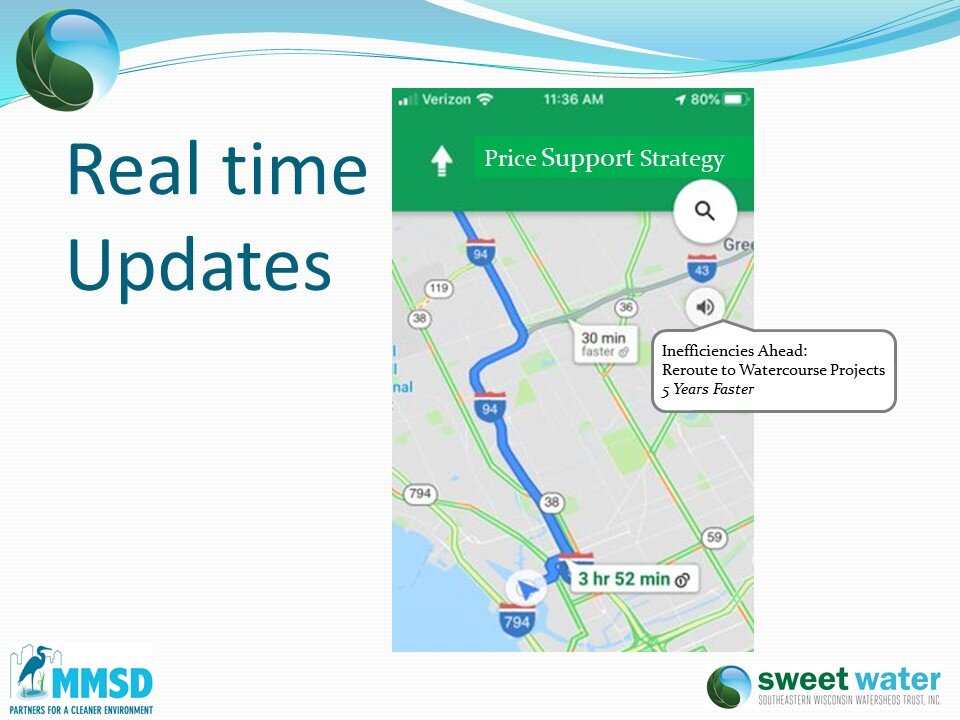
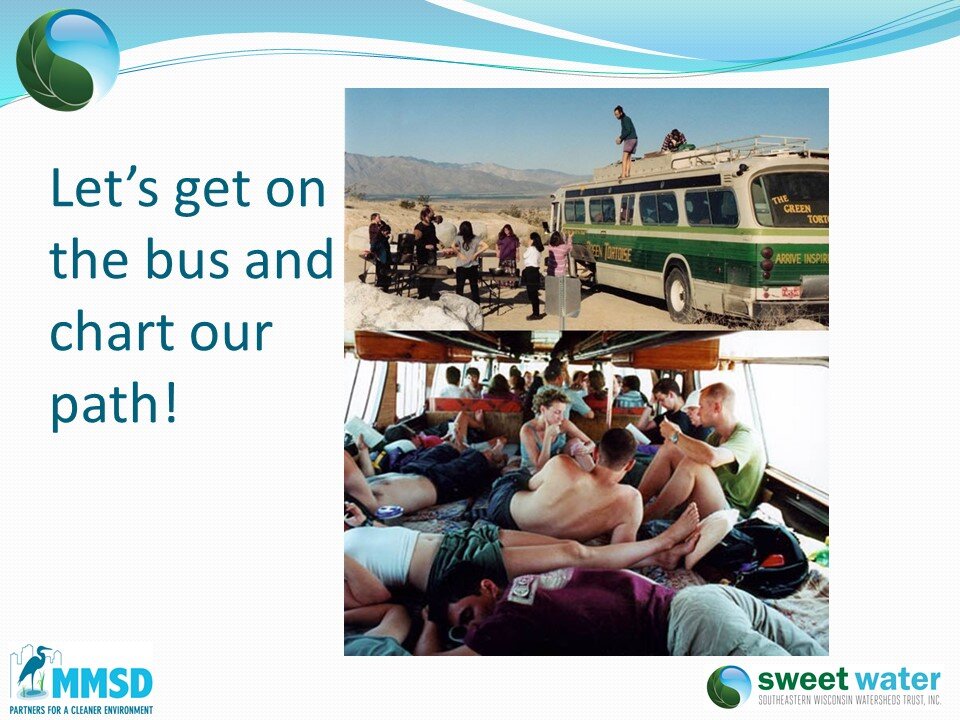

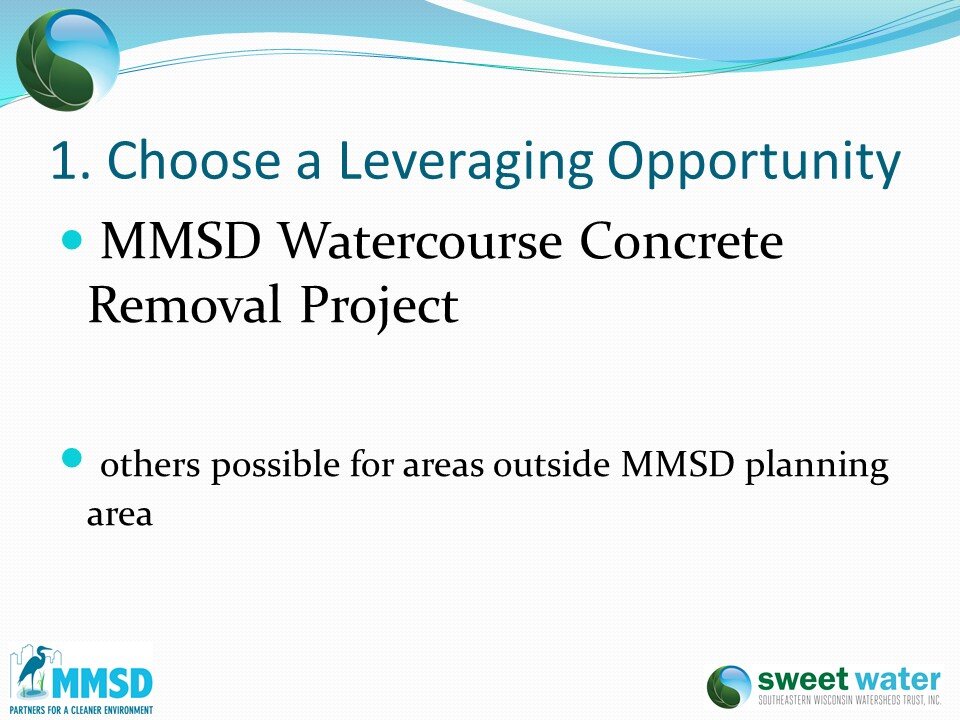
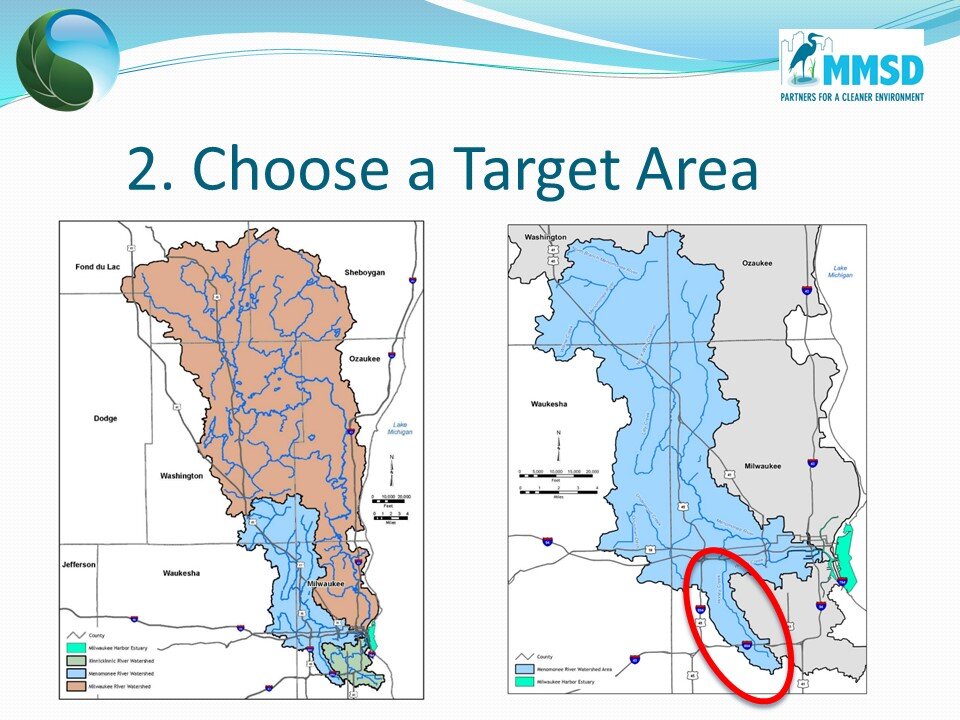
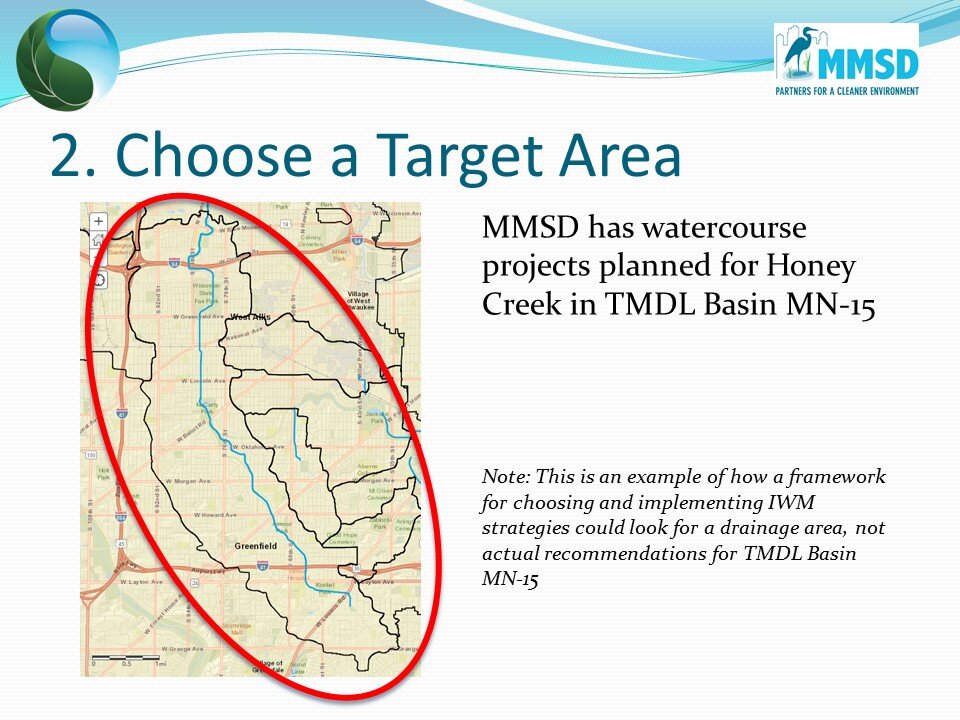
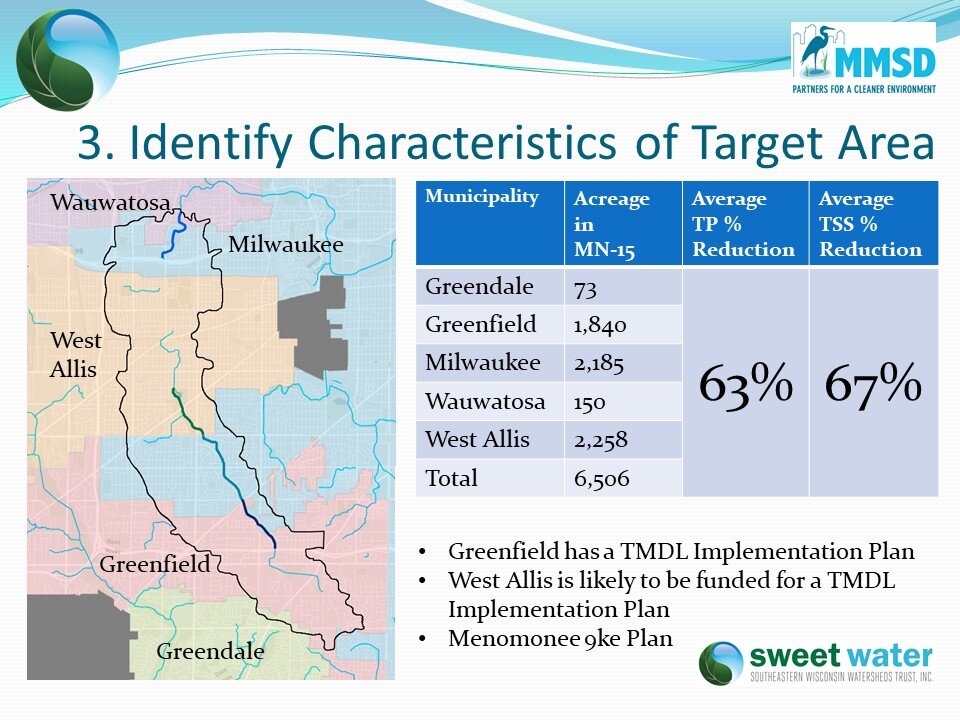
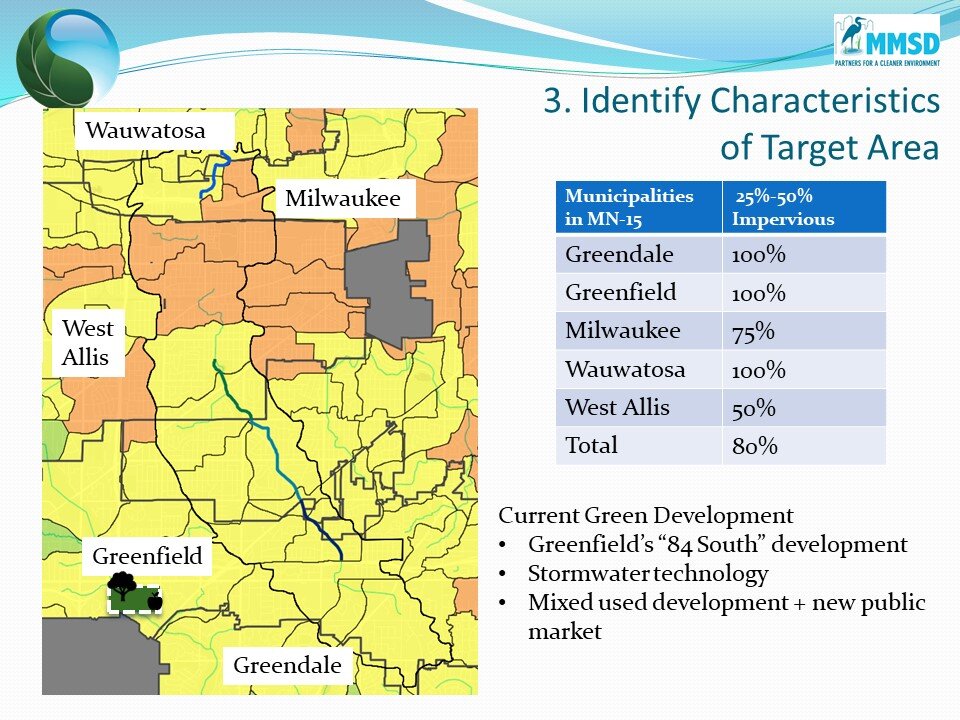
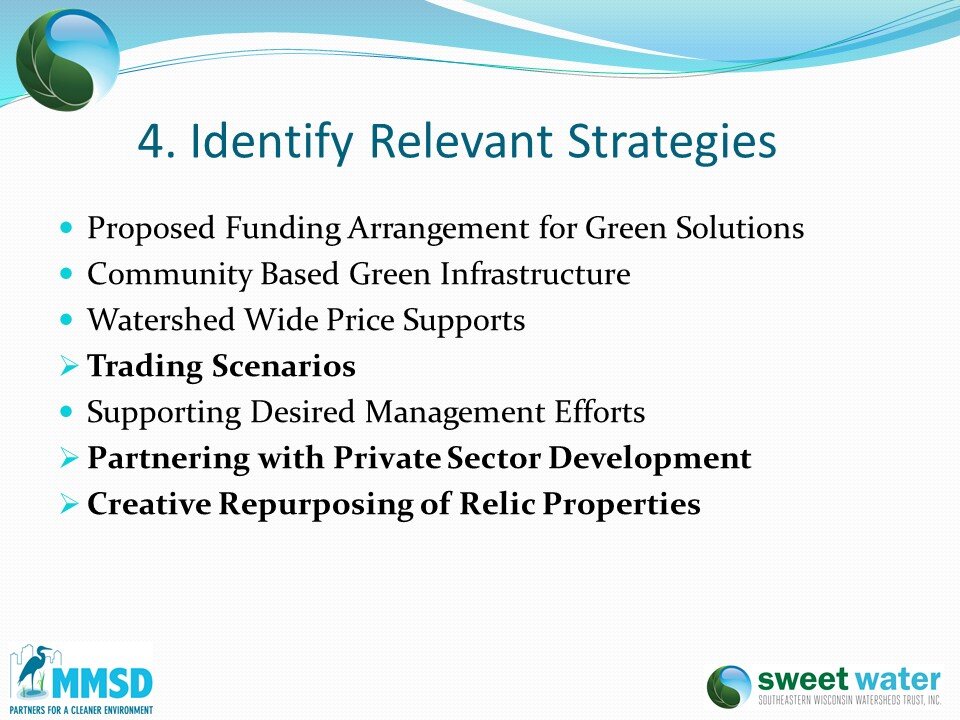
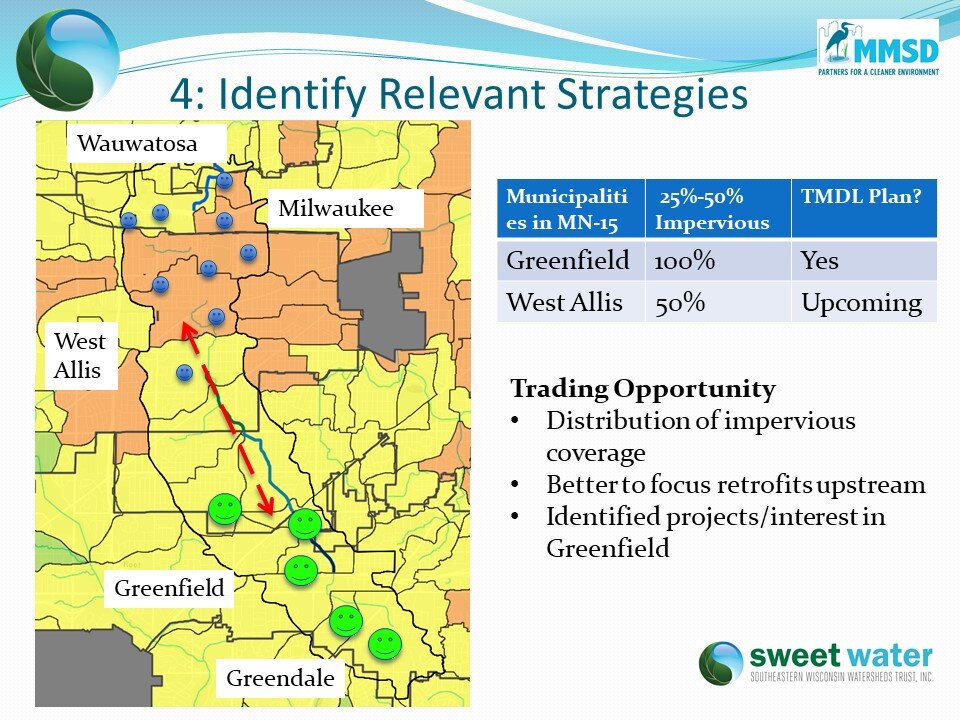
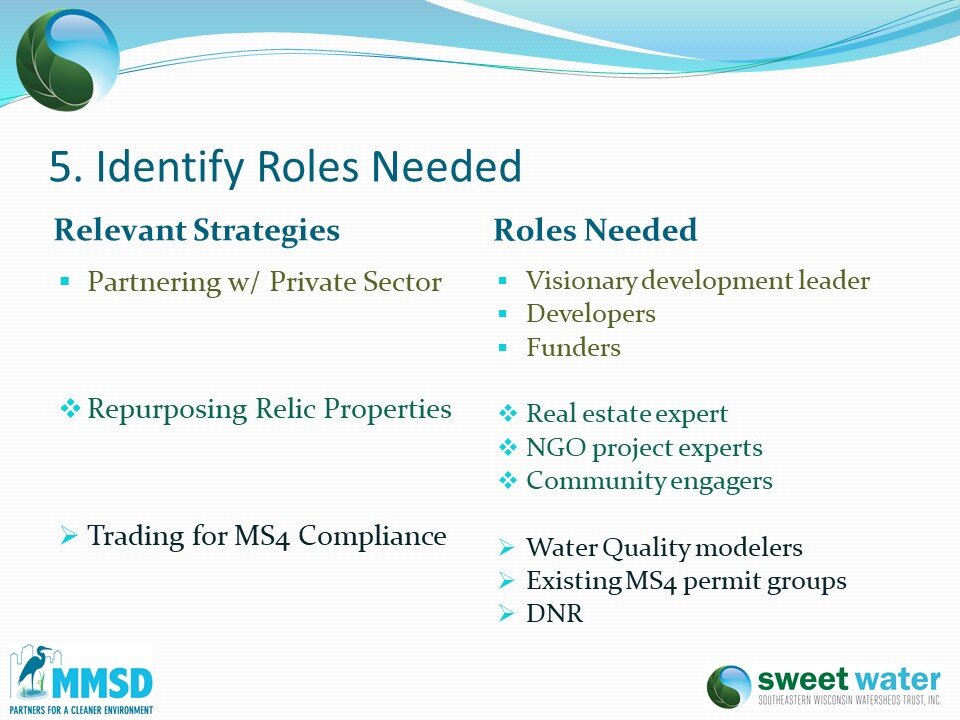
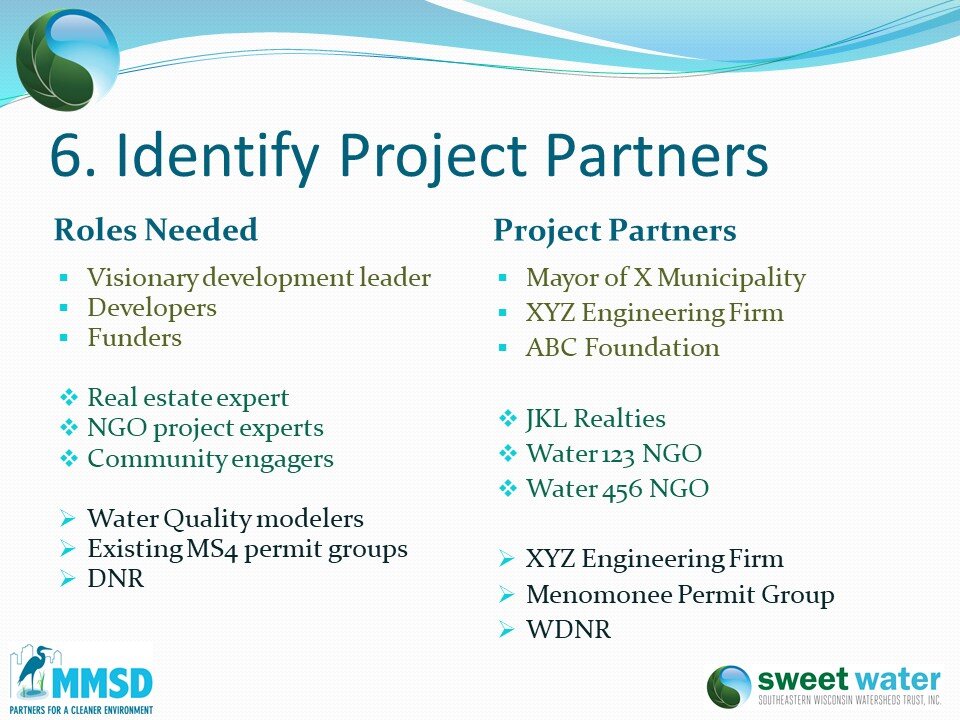
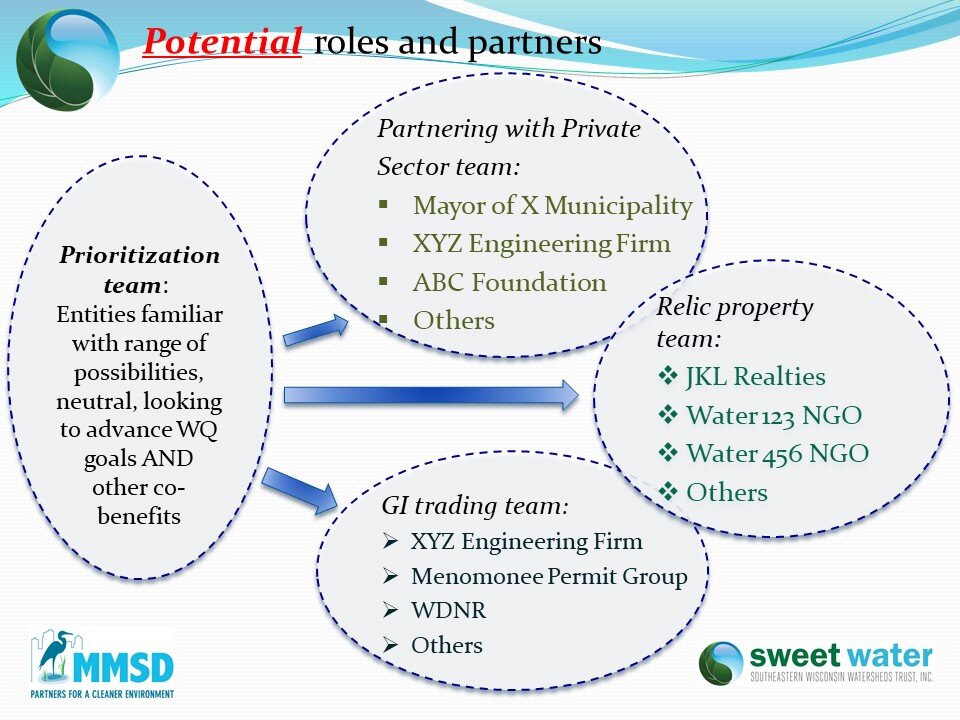
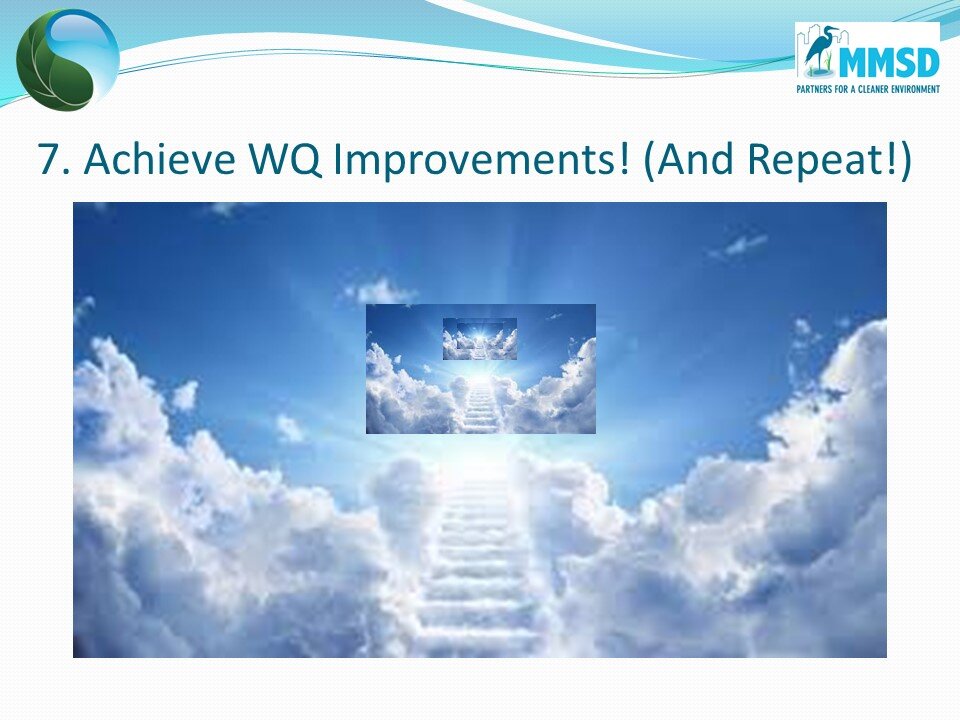
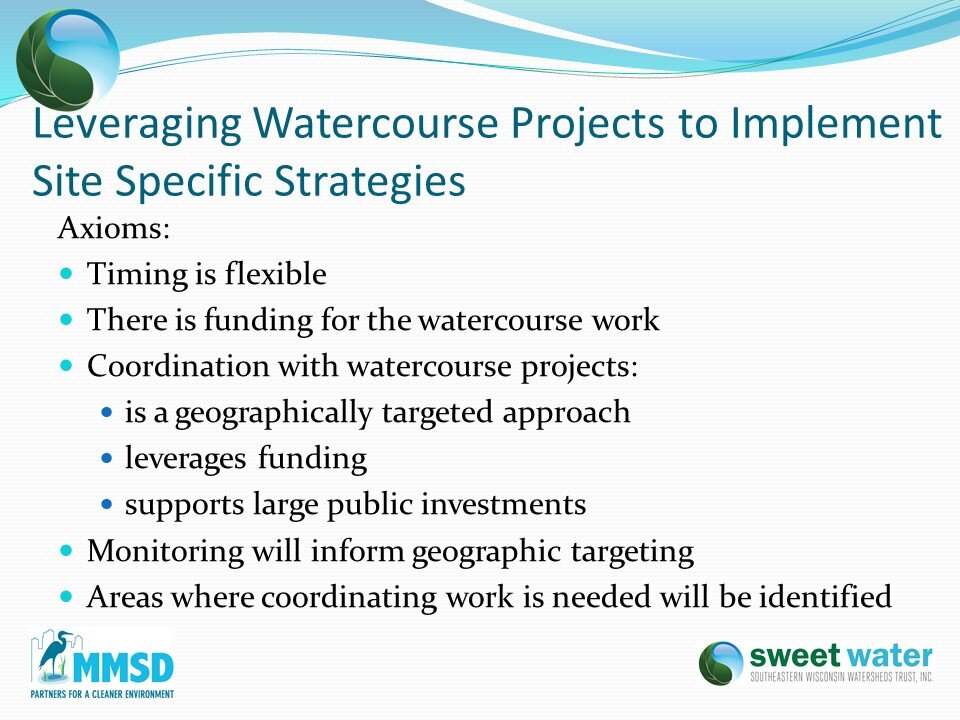
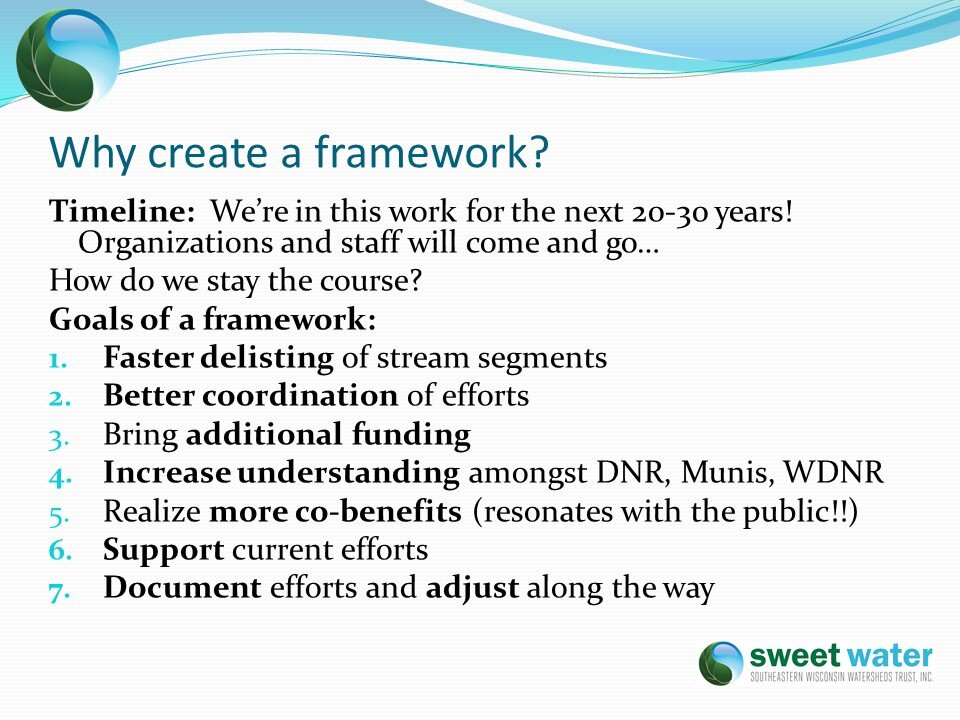
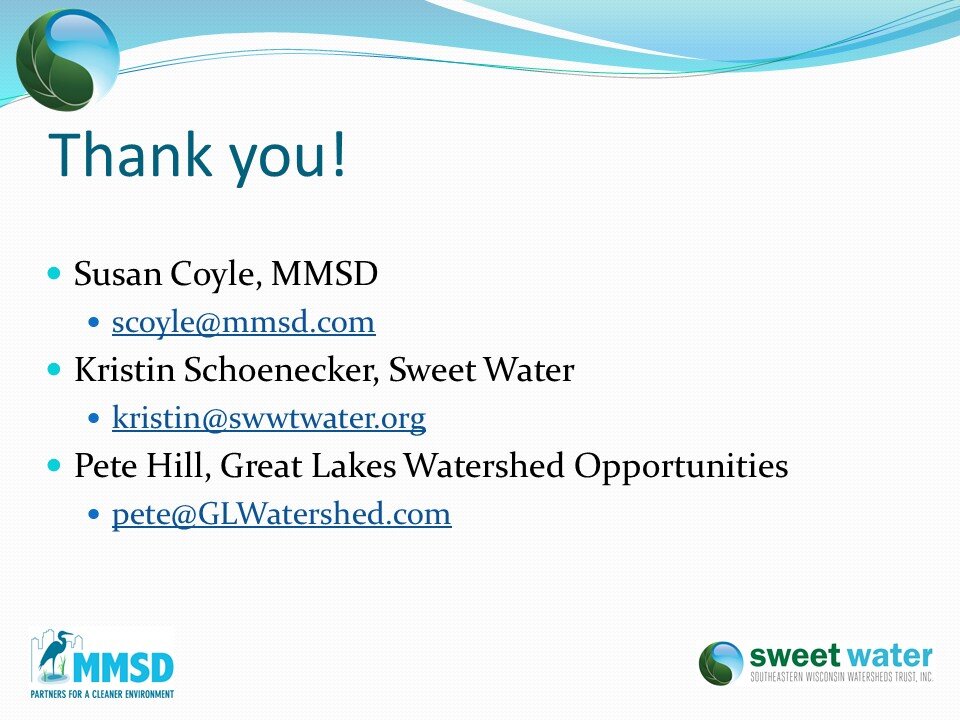
WQIP Resources
WQIP Options Paper Summary (963 KB)
Links to tools and references included in WQIP Options Paper:
KK Watershed GI Plan (MMSD)
Kinnickinnic River TMDL Dashboard (CDM Smith)
Menomonee River TMDL Dashboard (CDM Smith)
Milwaukee River TMDL Dashboard (CDM Smith)
Chloride Impact Study Presentation (SEWRPC)
Connect Capital: Milwaukee, WI (Center for Community Investment)
WQIP Development Timeline
WQIP Outreach
WQIP Strategic Advisory Work group Meetings
The WQIP Team convened a WQIP Strategic Advisory Work Group to help further refine the options defined in the WQIP Options Paper in late summer of 2019. The group met four times on and focused on two of the strategies identified in the WQIP Options Paper at each meeting. These meetings included:
Watercourse to Watershed Projects and Watershed Wide Price Supports, July 22, 2019
Supporting Desired Management Efforts and Training Scenarios, August 16, 2019
Proposed Funding Arrangements for Green Solutions and Creative Repurposing of Relic Properties, August 23, 2019
Partnering with Private Sector Development and a WQIP Framework, September 4, 2019
The conversations surrounding each strategy helped to identify their ability to improve water quality, increase support for efforts, achieve co-benefits, and work towards delisting impaired waterways in the Greater Milwaukee Watersheds. This feedback is helped the WQIP team to create a framework for incorporating these strategies into a plan for Integrated Watershed Management.
Thank you to the partners involved in this Work Group!
Milwaukee Riverkeeper
Milwaukee Water Commons
Reflo
Ruekert & Mielke
SEH Inc.
SEWRPC
Siepmann Realty
Sixteenth Street Community Health Centers
UWM
Village of Bayside
City of Milwaukee
City of Wauwatosa
Clean Wisconsin
County Materials
GZA
HNTB
Independent Contractors
Milwaukee Conservation Service Corps
Milwaukee County
MMSD
Spring/Summer Stakeholder Outreach: Intro to the WQIP
The WQIP Team convened and presented at a number of meetings in the spring and early summer of 2019 to introduce the WQIP development process to key stakeholders.
KK Watershed Advisory Committee Meeting, Tuesday, February 26
May Joint Science & Policy Advisory Committee Meeting, Wednesday, May 15
Watershed-focused NGO Meeting, Tuesday, May 28
Kinnickinnic Watershed Advisory Committee Meeting, Thursday, June 6
MMSD’s Technical Advisory Team Meeting , Thursday, June 20
Milwaukee River Basin TMDL Implementation Sector Team Meeting, Wednesday, June 19
Private Sector Informational Meeting, Tuesday, June 25
Final Introduction to the WQIP Workshop, Tuesday, July 2nd

